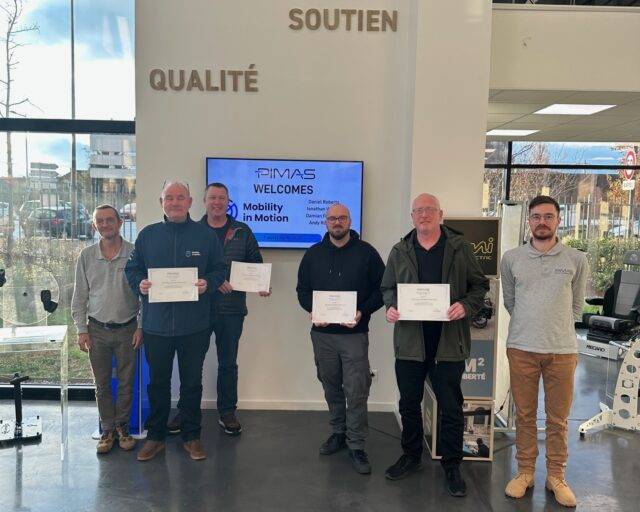Samantha Renke, “Unburden Yourself!”
At this year’s Naidex event, we had the absolute pleasure of chatting to the incredible Samantha Renke, Disability Rights Activist, Broadcaster and Campaigner.
She gave an outstanding talk about the language and experience surrounding disability, and kindly gave some of her time to speak to us about her own experience of ableist language and the burden of disability.
Samantha explains to us what it really means to unburden yourself of the labels placed on disabled individuals by society.
“I’ve just done a wonderful talk. It was called ‘Unburden yourself!’ – Path to success. And I guess I talked, ultimately, really challenging taboo topics around disability. I’m not scared of really getting into the nitty gritty, but my message for today is unburdening yourself from everything that people have told you, unburden yourself from that label.”
“We’re often given a diagnosis, either at birth or if we acquire a disability, and that’s one part of being disabled. But actually, society gives us a whole host of labels that are based in falsehood and stereotypes. It can be incredibly difficult to negate and get yourself out of that thought process, that ultimately turns into internalised ableism and can really echo that voice in your head that ‘you’re not worthy of’, ‘you are not deserving of’, or ‘you don’t have a voice’.”
“I want family and friends of disabled or neurodivergent individuals to take the onus away and recognise that it’s up to all of us to come together and have these meaningful conversations, so that disabled people can feel empowered and like they have autonomy over their life. “
And within this conversation, is a much wider one surrounding ableist language, which Samantha also touches on.
“I think language can be really divisive, but it’s also conversations that we need to have. As a consultant, the hardest conversations or the most asked question I get from non-disabled peers is ‘well I don’t know what language to use?’ And what happens is, they’re scared and this apprehension manifests in further marginalization.”
“My biggest tip for anyone who’s non-disabled is, if in doubt, ask. Don’t expect all disabled people to think and feel the same. I personally choose to identify first language because I believe in the Social Model of Disability, but not all disabled or neurodivergent people will agree with that. “
“There’s no place for ignorance anymore, and I often say in my training to leave your ego at the door. If someone says to you that they are upset or offended by language that you used, typically you let ego get in the way and shut down the individual because of embarrassment. Instead just be honest and own that you didn’t realise that was upsetting and be open and eager to learn. It’s never too late to unlearn and relearn.”
Thank you again to Samantha for taking the time to speak with us, especially on such an important topic.
Find out more about Sam’s amazing work or check out her new book “You are the best thing since sliced bread”.

Lifestyle
Home Health Checks: Protecting Air Quality, Warmth & Wellbeing.
As the colder months approach, our homes play a vital role in keeping us warm, comfortable, and safe. Yet winter can also bring challenges such as…

Lifestyle
Prepare Your Vehicle For Winter: Must-Have Features For Disabled Drivers & Passengers
With colder weather on the way, now is the ideal time for disabled drivers and passengers to prepare their vehicles for the challenges of winter. Lower…

News
We Become the Exclusive UK Distributor for Pimas Driver-Control Solutions
We’re excited to announce that Mobility in Motion has become the exclusive UK distributor for Pimas driver-control solutions, including the brand-new Voice Control system. This is…